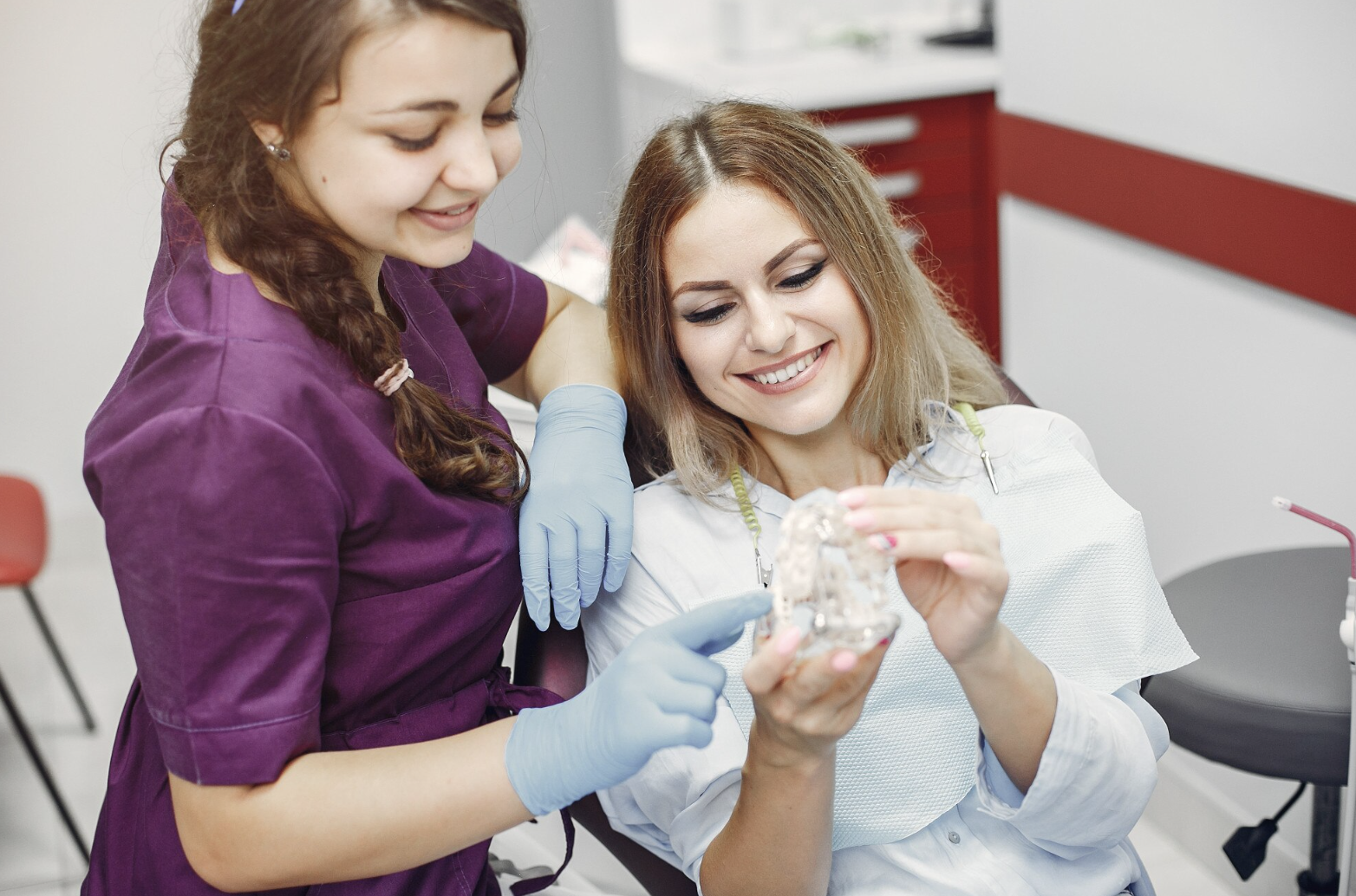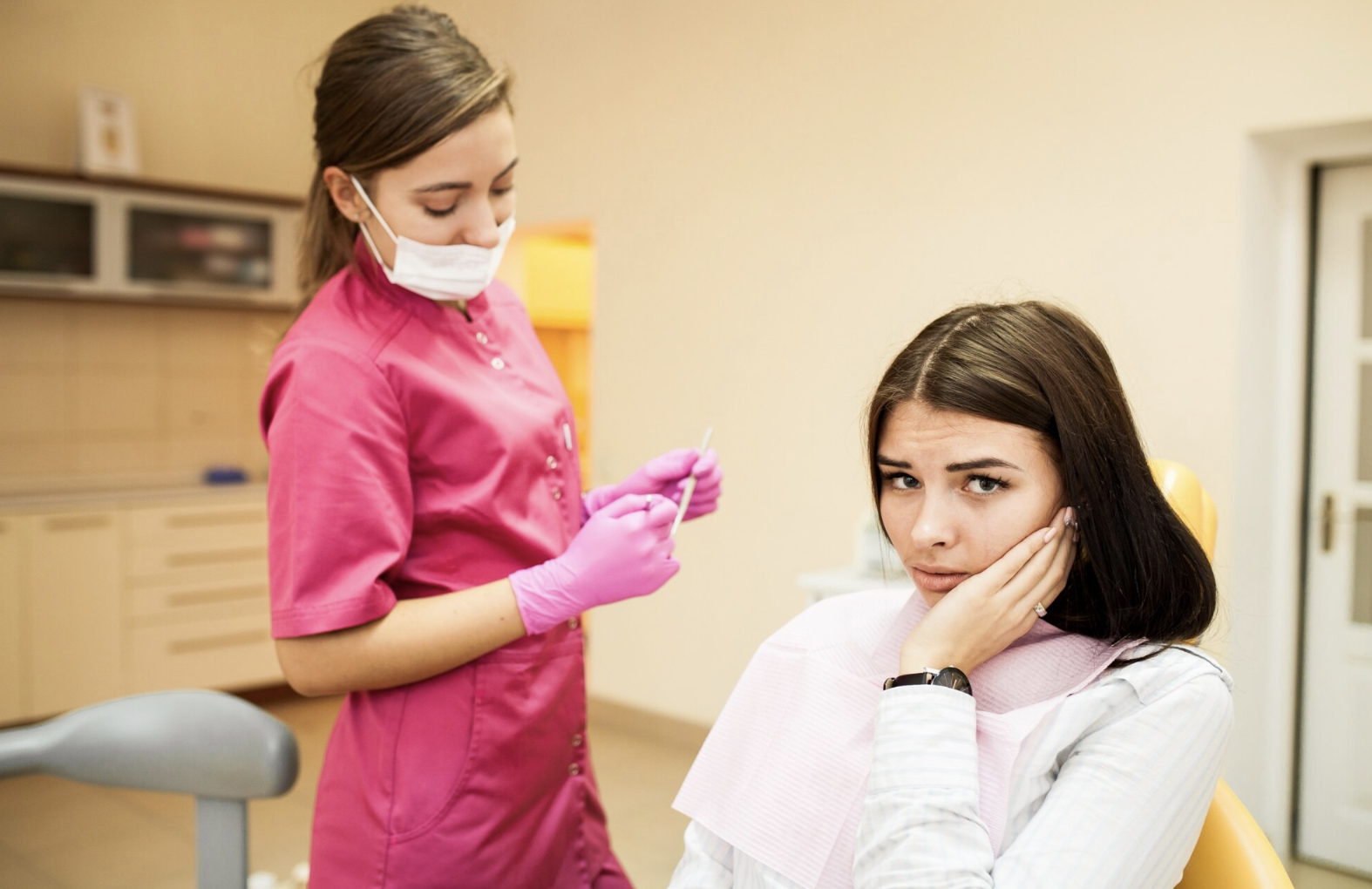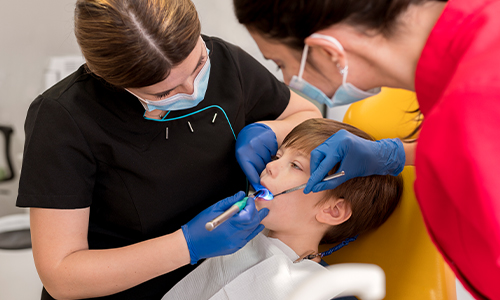Wisdom Teeth Removal For Teenagers
Teen Wisdom Teeth Removal: Wisdom teeth are the third set of molars, the toughest and widest teeth at the corners of the mouth which can help in grinding food. Some people do not have them at all while some have them in numbers ranging from 1 to 4. Typically, they erupt and show up on dental X-rays when an individual is in their mid-teens, around the ages 17-21 but they can even erupt at ages 13 or 14 after the eruption of other permanent teeth. One can feel them as they push against the back gums.
There are several signs that a child is having wisdom teeth coming in. These include jaw or cheek pain, recurring headaches, swollen cheeks, swollen gums at the back of the mouth, tender or bleeding gums, chronic tooth pain at the corners of the mouth, trouble opening the mouth wide, an unpleasant mouth taste or chronic bad breath, and crooked or out of alignment teeth.
For some people, wisdom teeth can turn out to be problematic. Sometimes, they can cause pain, cavities, swelling, or gum disease upon their arrival. That’s usually because they are impacted (trapped in their jawbone or gums) or erupt at wrong angles pressing against other teeth, the mouth is small and there is not enough space in the jaw for an extra set of molars, or there are cavities or gum disease because of not being able to clean wisdom teeth with a toothbrush or dental floss. Thus, having such wisdom teeth removed is a rite of passage for many teenagers and young adults.
When do Teenagers Need to Extract their Wisdom Teeth?
Experienced oral surgeons in Chicago at The Dental Specialists advise parents to look out for key warning signs indicating the need for wisdom tooth removal of their child. They recommend scheduling a proactive evaluation to determine the potential of having problematic wisdom teeth which need removal. The noticeable symptoms that a teenager needs to undergo wisdom tooth extraction include:
- Persistent wisdom tooth pain or toothache radiating beyond the site of third molars usually because of impacted wisdom teeth or teeth coming in at an awkward angle
- Gums inflammation, sometimes accompanied by redness and bleeding often resulting from gums infection or disease
- The tooth’s sensitivity to hot or cold temperatures or sweets could be due to severe tooth decay or cavities beginning to form
- Crowding and displacement of neighboring teeth as a result of an out-of-alignment eruption of wisdom teeth
- Chronic bad-smelling breath can be caused due to certain health issues, medications, or lack of commitment of teenagers to oral hygiene, or be as a symptom of gum disease or infection of wisdom tooth
- Recurring sinus pain and nasal congestion possibly because of the improper angle of growth of teeth which causes third molars to press against the sinuses.

What Age is the Best for Wisdom Tooth Removal?
Wisdom tooth removal can be done at any age after they erupt. Mostly, the patients belonging to the age group 17-25 have a problematic wisdom tooth extracted until that time wisdom tooth has erupted and its long roots have not completely developed as well as the jawbone hasn’t become mature.
What to Expect from a Wisdom Tooth Extraction?
Before Surgery
The parent or the caregiver of the candidate makes an appointment with the concerned oral surgeon to discuss the wisdom tooth removal of their teen. During the initial consultation, the teen’s health status is checked, any questions related to their wisdom tooth extraction are answered, and their current intake of medications is listed and accordingly discontinued or avoided to prepare for the surgery. As anesthesia is being provided, the teen is asked to keep the bowel and bladder not full for at least 6 hours beforehand.
During Wisdom Tooth Extraction
Wisdom tooth removal is an easy, short process lasting for 45 minutes or less. To ensure comfort throughout the procedure, the surgery is carried out under local anesthesia, general anesthesia, or IV sedation. Once the mouth is numb, the surgeon makes a gum incision or cut in the jawbone to pull out the wisdom tooth with its roots. Next, the incision sites are closed using dissolvable stitches. Stuff gauze pads may be placed inside the mouth at the operated site to soak up blood resulting post-surgery.
After Wisdom Tooth Removal Surgery
After reaching back home, the teen is recommended to take proper rest for at least a day. Once at home and awake, the candidate is provided with pain-relieving medications and is asked to apply ice packs on their jaws for a few days for resolving any pain or discomfort including skin color changes and swelling, during the first 24-46 hours post-surgery. Following 24 hours of the surgery, the candidate can start using warm salt water rinses and/or antiseptic mouthwash and start brushing to avoid blood clots.
In the case of diet, firstly the candidate must have liquids, such as jello and broth, and then gradually shift to soft, semi-solid foods like bananas, smoothies, shakes, etc. This is the right time for the candidate to consume oatmeal, white pasta, and soft mashed potatoes. While having liquids, it is advised to not use a straw for sipping. Eating hard, sticky, or crunchy foods is strictly not recommended. Exercising the jaw by gently opening/closing the mouth and drinking plenty of fluids is a must.
Following the surgery, on the third day of the recovery period, the swelling in the jaw becomes more prominent and subsides after several days as should any bruising. For the sore jaw, the candidate can use moist heat on the face after 36 hours of the surgery. The teen can look forward to getting back to his/her normal daily routine after 1-2 weeks or unless it is advised by the oral surgeon. The fun activities must be held after complete healing. Smoking can increase the risk of developing dry sockets, hence it is not advised.

Benefits of Wisdom Tooth Removal in Your Teens or 20s
Extraction of a wisdom tooth by an oral surgeon is often recommended when one is in teenage years or in young adult age groups because of the following advantages:
- No overcrowding
- No damage to adjacent healthy teeth
- Reduced risk of developing dental cysts
- Lower risk of developing periodontitis (a gum disease) or painful gum inflammation (pericoronitis)
- Better oral hygiene and enhanced oral health
- No more oral injuries or infections caused by an eruption of wisdom tooth towards the side of the mouth.
For more information on wisdom tooth removal for teenagers in Chicago, schedule a consultation with the best oral surgeon at First Point Dental.

